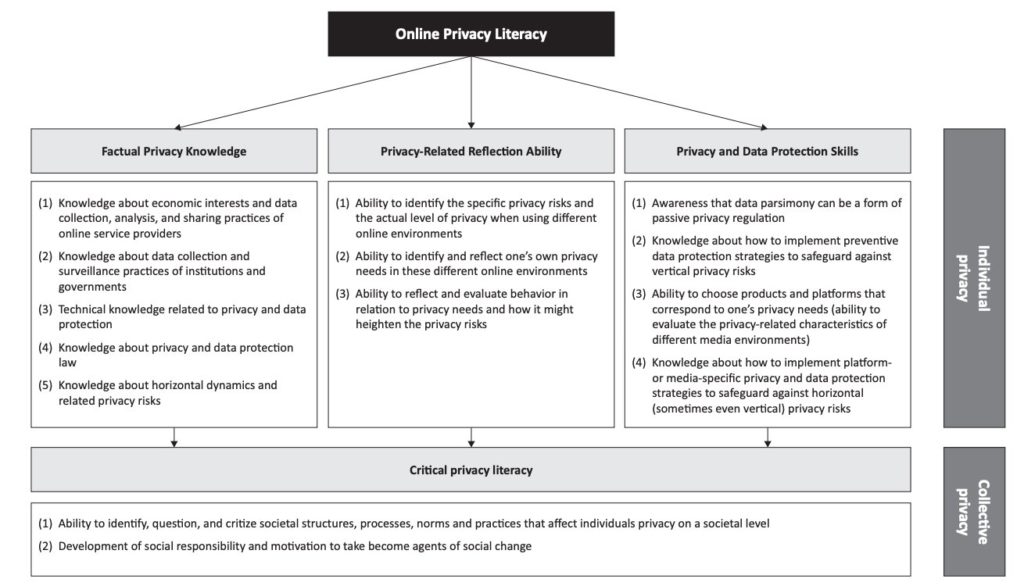Current debates on online privacy are often rooted in liberal theory. Privacy is hence often understood as a form of freedom from social, economic, and institutional influences. Such a negative perspective on privacy, however, focuses too much on how individuals can be protected or can protect themselves instead of challenging the necessity for protection itself. Similar to treating symptoms of a disease instead of its causes, providing protection fails to acknowledge that the necessity for such protection is a consequence of the social power relations that led to privacy intrusions in the first place.
A while back, I already wrote about my research on privacy literacy (→ see this post). In a new article, published in Media and Communication, I further develop these ideas and argue that a comprehensive and multi-dimensional form of online privacy literacy may not only empower individuals to achieve (a necessarily limited) form of negative privacy, but might also have the potential to make individuals agents of social change and thereby create conditions of positive privacy in democratic societies. Such a comprehensive concept of online privacy literacy needs to encompass a) factual privacy knowledge, b) privacy-related reflection abilities, c) privacy and data protection skills, and d) critical privacy literacy (see Figure 1).
 Figure 1: A comprehensive model of online privacy literacy.
Figure 1: A comprehensive model of online privacy literacy.
The article is part of a special issue on “The Politics of Privacy” edited by Johanna E. Möller, Jakub Nowak, Sigrid Kannengießer, and Judith E. Möller. The diverse contributions focus on theoretical challenges of contemporary communication and media privacy research as well as on structural privacy conditions and people’s mundane communicative practices underlining inherent political aspects. They highlight how particular acts of doing privacy are grounded in citizen agency realized in datafied environments.
All articles are open access and can be downloaded here.
Thanks for the information and very useful 🙂